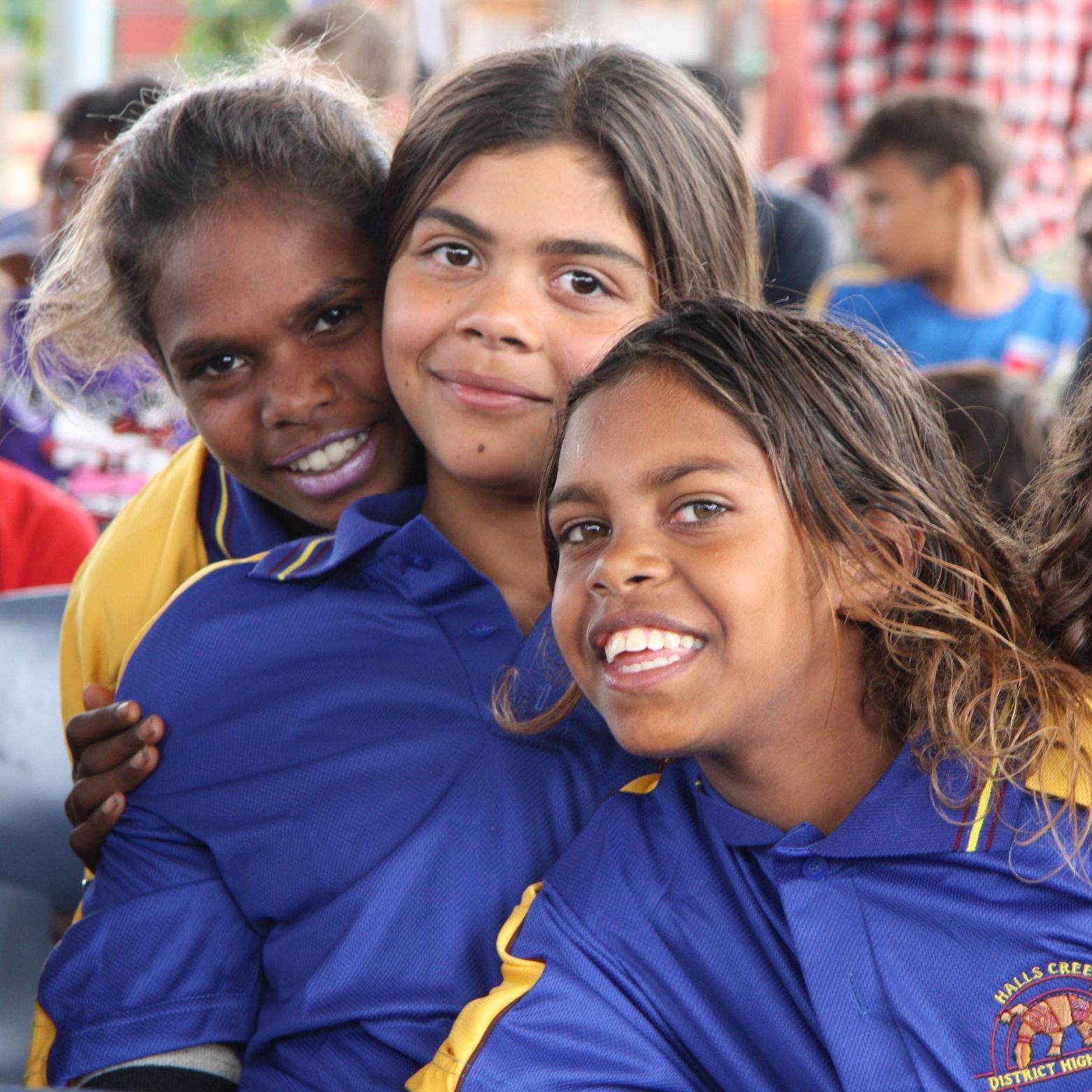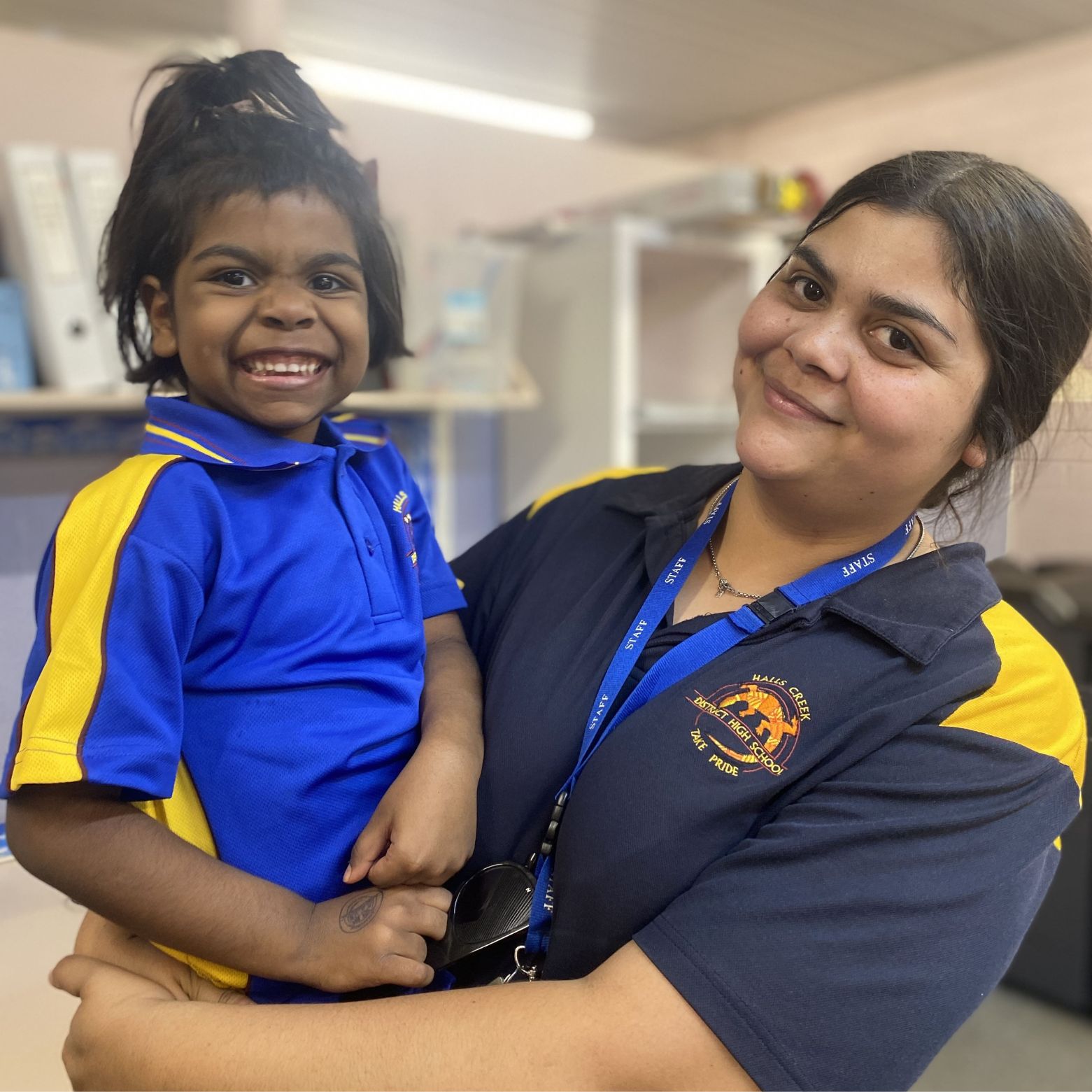
Supporting The Voice for Positive Change
Sharing our experience of listening to the voices of First Nations peoples.
As you know, on October 14 all Australians will be asked to vote ‘yes’ or ‘no’ in a referendum asking whether they support “A Proposed Law: to alter the Constitution to recognise the First Peoples of Australia by establishing an Aboriginal and Torres Strait Islander Voice”. ASPA Directors announced in April that we support the call for a Voice, and continue to stand by this decision in the hope of walking together with our First Peoples towards a better future. Girls from Oz General Manager and ASPA General Manager of Business Services, Kylie Lee-Archer, shares some of the conversations that are taking place in the remote Aboriginal communities Girls from Oz visits.
“Over the last fourteen years I have been fortunate to work with and befriend many people in Halls Creek, Carnarvon, Lockhart River and more recently Kowanyama and Bidyadanga. I am privileged to walk alongside them as we aim to engage their daughters,nieces and little sisters in their schooling using the Performing Arts as a ‘hook’. I have learned about and experienced some of their cultural practises, I have been taught some of their language and songs and I listened to them describe the challenges they face, and their concerns for future generations.”
What is The Voice about?
Recognising…
For the first time in history, Australia has the opportunity to recognise Indigenous Australians in our constitution through a Voice to parliament. A Yes vote will recognise 65,000 years of Indigenous connection to this land and acknowledge Aboriginal and Torres Strait Islander people as the first inhabitants.
It is also about recognising the facts – that there is still inequality between Indigenous and non-Indigenous people, including shorter life expectancy, poorer health outcomes and lower levels of education and employment.


“In Halls Creek I work with a woman named Kaite (pictured above). Kaite was a year 7 student participating in the g-oz program when I first met her in 2010. Kaite went away to complete her secondary schooling on the Gold Coast and now is back working at Halls Creek District High School as an Aboriginal and Torres Strait Islander Education Officer (AIEO).
Kaite’s daughter, Isla, is now in the Pre-Primary class and participates enthusiastically in g-oz sessions as her mum once did. The odds are stacked against girls and young women in Australia’s remote communities. We don’t want Kaite or Isla to be the exception, we want to change the odds; voting yes just might result in the change we need.”
The Voice will empower local communities to make a difference in health and education outcomes on the belief that “when Aboriginal and Torres Strait Islander people have a genuine say in the design and delivery of policies, programs and services that affect them, better life outcomes are achieved” – Closing the Gap

Listening…
“When we sing in community, we ask the women what songs they’d like their children to sing and translate songs into local language/s where possible. We couldn’t achieve outcomes anywhere near as amazing as we do without consultation and collaboration. If we took that and applied it at a federal government level, I’m hopeful that outcomes would be better.” – Kylie Lee-Archer
The Voice will give our First Peoples the opportunity to have a say in policies and challenges that affect their communities and their lives. The Voice does not have the power to change laws – it is an advisory body made up of First Nations Peoples, giving advice to government about laws and policies that impact First Nations Peoples.

“The people I have met in remote and regional Australia wish to be consulted about the aims and activities of our Girls from Oz programs. Our programs directly impact Aboriginal children, their families and their community and, appropriately, parents and leaders want to be involved in the design and delivery of the work we’re doing.” – Kylie Lee-Archer
Protecting…
If the referendum is successful, there will be a permanent body in Parliament with a First Nations Voice to advise on the policies and laws that affect their communities, regardless of successive governments. Previous governments have tried to develop First Nations advisory bodies to varying degrees of success, however these have never been protected by the constitution and have been continually altered or disappeared altogether when parties have been overthrown.


Who asked for The Voice?
While it’s been 100 years of calls for Voice, the idea for a Voice to Parliament was formalised in 2017 by more than 250 Aboriginal and Torres Strait Islander leaders, nominated by their communities through the Uluru Statement from the Heart. More than 80% of Aboriginal and Torres Strait Islander people support the proposal, and now it’s up to all Australians to make that proposal a reality and improve the lives of our First Peoples.
“It feels important that ASPA respond to the Aboriginal and Torres Strait Islander people who are asking Australia for a Voice, the people who crafted the Uluru Statement from the Heart, and the people madly campaigning for a yes vote, including our colleague, Catherine Liddle (g-oz Board Director and CEO of SNAICC).” – Kylie-Lee Archer
“I think it’s a privilege to live in places where access to the performing arts is kind of expected. When I think about remote communities where many Aboriginal and Torres Strait Islander people live, they don’t have that same privilege.” – Kylie Lee-Archer

ASPA’s invitation to our community
In 2022, ASPA in partnership with Reconciliation Australia formalised a commitment towards reconciliation through our Reflect Reconciliation Action Plan (RAP). Reconciliation Australia defines ‘reconciliation’ as being about “strengthening relationships between Aboriginal and Torres Strait Islander peoples and non-Indigenous peoples, for the benefit of all Australians” which we believe can be achieved with a permanent Voice in parliament.
“We acknowledge and hear the Aboriginal and Torres Strait Islander people who don’t think that this suggested change goes far enough or deep enough, but as an organisation, we want to support the 80% of First Nations people who have asked for this change, the 250 First Nations people who outlined their invitation in the Uluru Statement of the Heart and who want to try something different.”
Education is at the forefront of everything we do at ASPA, so we invite our community to join us on this journey towards reconciliation and be open to learning; to be open to finding better life outcomes for our First Peoples; and to be open to providing greater opportunities, like education, to Aboriginal and Torres Strait Islander children.



